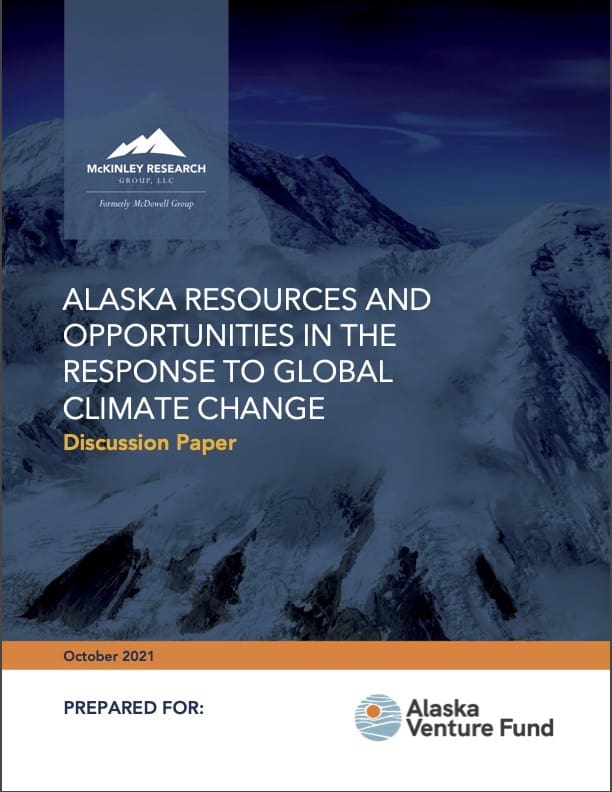A Pathway for Alaska
Governments, businesses, non-governmental organizations (NGOs), and individuals are increasingly focused on global climate change and the challenges it presents to populations and natural systems across the world. The measures required to slow the global temperature increase and hold overall warming to within best-case realms (1.5° to 2.0°C or less) demand a wholesale effort from a spectrum of actors. Necessary steps range from reduction of carbon and other greenhouse gases (GHG) releases to long-term sequestration of carbon and GHG from Earth’s atmosphere.
Alaska faces significant climate-related challenges, with temperatures rising at rates far greater than those in lower latitudes and impacts felt already throughout all regions of the state. At the same time, the global pivot to climate change mitigation creates opportunities. With massive current stores of GHG throughout the state’s intact ecosystems, valuable energy resources that can power carbon removal and sequestration, and a giant land-base and marine zone in which carbon solutions can be engineered, the state is positioned to drive meaningful impact in climate response and stabilization. Billions of dollars (and in some markets, in excess of a trillion dollars) are moving to respond to climate change, with additional commitments and further reorientation of global capital occurring on a near-weekly basis.
To position itself as a global player in climate response, and to orient the economy of tomorrow toward the opportunities presented by this global imperative, Alaska’s political, business, and tribal leaders must act boldly to:
- Attract investment in testing and deployment of climate-responsive tech, ranging from renewable energy solutions to carbon capture and sequestration.
- Lead in the development and deployment of natural climate solutions, building on the extraordinary terrestrial and marine resources of the state. This must include the quantification and monitoring infrastructure necessary to position Alaska for investment.
- Use strategic partnerships and homegrown capacity to create novel market tools and stake out a leadership role in the “financialization” of greenhouse gas sinks.
- Aid municipal, tribal, and other local scale projects in identifying and capturing capital market opportunities; and drive federal programmatic dollars toward climate-linked opportunities in communities across the state.
- Exert the necessary political influence so that federal investments in climate are scaled for Alaska’s opportunities, and drive benefit to Alaskans.
Absent a significant, proactive focus on these opportunities, Alaska stands to be passed by during the most significant realignment of global capital priorities in generations. Climate change is a humanitarian and ecological crisis. Science has built a framework for understanding it and identifying possible solutions. Action will occur where capital and governmental funding flows.
Alaska’s policymakers, business community, and university system, among other key actors, have clear roles to play in a path toward climate leadership. These roles include:
- Building awareness and visibility of economic opportunities in Alaska related to climate change.
- Establishing a shared vision of opportunity and a strategic orientation toward climate-driven economic opportunities.
- Developing the next generation of climate leaders, including those who will work at the intersection of capital markets and climate.
- Identifying and removing regulatory barriers that prevent Alaska from realizing its maximum potential as a major GHG natural resource base.
- Accelerating the climate economy by attracting new businesses and investors hungry for climate-responsive innovation.
These recommendations are informed by key informant interviews and a literature review – both of which are further elaborated in the report. Other jurisdictions – nations, states, and economic blocs – are already building new economic power around the climate change imperative. Alaska can position itself to be part of this transition.
